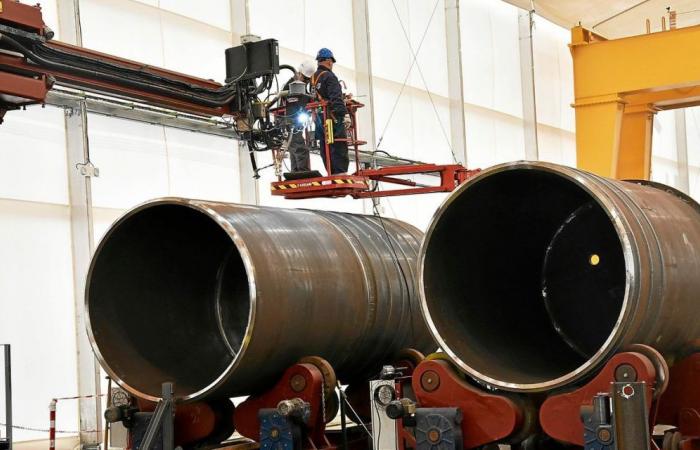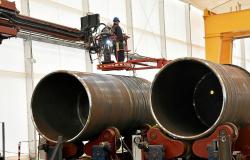
“Space, marine renewable energies, health technologies, maritime droneization, cybersecurity, artificial intelligence. We already have companies in these high-potential industrial sectors but more are needed. We are working on it, with various stakeholders such as the Pôle mer, the technopole, the CHU, the town planning agency…”
Michel Gourtay, vice-president of Brest Métropole in charge of the economy, lists, this Thursday, October 10, 2024 at the Capuchins, the areas considered promising and details the reindustrialization strategy of Brest and its surroundings, to follow a national desire. “We want to densify the ecosystem of these sectors.” Naval maintenance and the military industry to “participate in the war effort” are also cited.
Recognized as attractive, the Brest employment area suffers from a lack of space to accommodate new economic activities (not counting housing). Since 2021, 29 projects requiring 22 hectares have been abandoned due to lack of space. Essentially expansions of already established companies. There are still around twenty hectares available, in total, in the metropolis’s business zones. A study estimates the need for hectares to meet the needs of targeted industries at 70 or 80 by 2035. In 2025, 7 hectares in Spernot, in Brest, 2.5 in Kerebars, in Guilers and 15 in Saint-Thudon, near the airport in Guipavas.
-
3 Change design habits
To reduce this land shortage, knowing that the law will prohibit over-expanding (net land take must fall by 50% by 2031), we must anticipate and find solutions. Expand as much as possible while we have the right to do so, disregarding the defense of nature and agriculture? Local actors instead intend to limit this extension. Rehabilitation will have to develop. We are also at a time when certain areas of activity are aging. Raising is also advocated. In addition, an employment/surface ratio is examined: industries that require a lot of space, such as logistics, are not prioritized.





